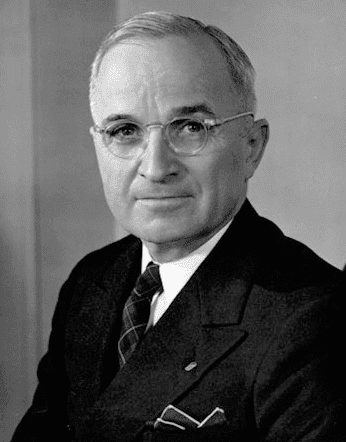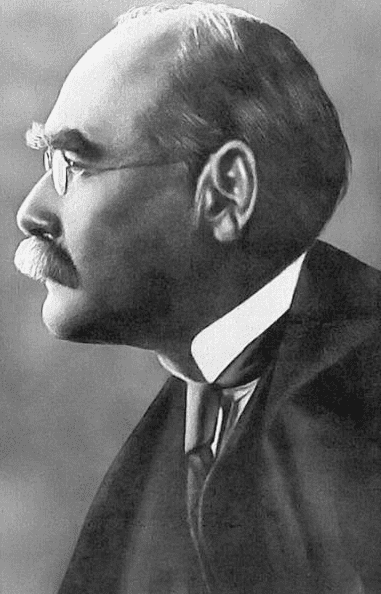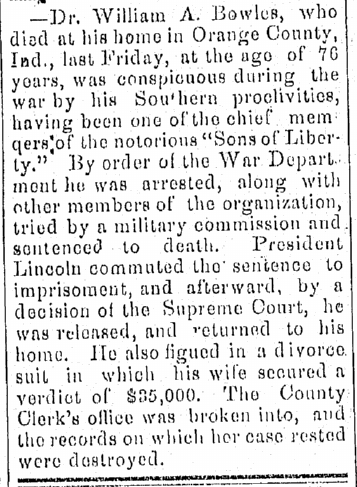Introduction: In this article, Duncan Kuehn provides a guide to understanding your ancestors’ middle names, and how to use middle names in your family history research. Duncan is a professional genealogist with over eight years of client experience. She has worked on several well-known projects, such as “Who Do You Think You Are?” and researching President Barack Obama’s ancestry.
As a genealogy consultant, I often get questions about the significance of middle names. This article will cover many of the common reasons behind middle names, and discuss their usefulness when doing family history research. (Since I am discussing the middle names of ancestors, I have used the past tense in this article—but the information can apply to the present day as well.)
Middle names can offer significant and important clues about your ancestors. Or not. Let’s cover the cautions first.
Things to Remember When Researching Middle Names
The first thing to keep in mind is that not everyone had a middle name. Nor does every middle initial have a name associated with it. Harry S. Truman is a well-known example of this; the “S” did not stand for a middle name. Sometimes this was done to distinguish family members with common names, such as George H. W. Bush and George W. Bush. George H. W. Bush brings up another point: it is possible for someone to have multiple middle names. A friend of mine has seven!

Is It a Middle Name or First Name?
Some names that appear to be middle names are actually part of the first name. In my own family and circle of friends the following double first names appear: Rose Marie, Mary Beth, Alice Ann, Mary Jo, Terry Kay, and Mary Ann. While these are more common among females, there are similar male names. Conversely, some of what appear to be middle names may actually be part of the last name. This is common in Latino names or some European names like Van Wagonen or Mac Graw.
Some middle names were used like a first name. A person named John David Smith may have never been addressed as John at all. He may have used the name J. David Smith or just David Smith or even David J. Smith. Sometimes this is done when the first name is also the parent’s or a relative’s first name. For example, the world knows this famous British author as Rudyard Kipling—but his full name was Joseph Rudyard Kipling.

In the U.S. South, the first and middle name could be switched back and forth making it unclear which name was originally intended for which purpose. It was also not uncommon for several siblings in a family to have the same middle name or, less commonly, the same first name with different middle names.
How Middle Names Are Chosen
It’s also possible that middle names may have no significance at all. In some cases, the parents just picked them because they liked the name and/or it sounded good with the first name. Middle names may have been influenced by the culture at the time. During the 1970s and 80s many girls were given the middle name of Marie or Ann simply because they were popular. Parents may have liked an uncommon name but didn’t want to give it as a first name, so they chose it as a middle name. These could include common words being used as middle names, nature-inspired themes, virtues, and so on.
The middle name may be a common name used among the family. My own middle name is the same as my mother’s. One of my brothers carries the middle name of our father and grandfather. But neither name has any real significance. Incidentally, neither my brother nor I liked the middle names we were given, and the tradition with those particular names ended with us. As in my family, the name may be another family member’s first name. Both of my sons have middle names that are also the first name of an ancestor or living relative. It is not uncommon for a son to have for a middle name his father’s or grandfather’s first name. This can also happen with daughters although not as commonly.
Is It a Middle Name or Last Name?
Sometimes the ancestor’s middle name appears to be a surname. This can happen for males or females. A surname used as a middle name may come from the mother’s maiden name. This is yet another reason why it is important to conduct research on everyone in a family and not just your direct line. However, don’t assume the unusual middle name is the mother’s maiden name as there are other reasons why this could occur. When you find a surname used this way, do some research on others in the area with that last name. You may discover that the parents just used the name because they liked it. Or you may discover a hidden secret. The following are three middle name examples I have found in my own genealogy research.
Middle Name Research Case #1
My great grandmother’s middle name was Bell. Initially, I believed this was a misspelling of the name Belle, which means beautiful. But then I discovered her father also had the middle name Bell, as did several other relatives. I have found many Bell families living near them as well. I now suspect that the name was “borrowed” from the Bell family, but at this point I have not yet found a clear connection. They may have just been friends or there may be another reason.
Middle Name Research Case #2
On another line of the family I found the middle name Bowles. Searching the neighborhood I found a prominent man named William A. Bowles. William was also the given name of my ancestor. It is possible that my 4th Great Grandparents named their son William Bowles after this man. So I did a little digging into GenealogyBank’s Historical Newspaper Archives for more information on this man. I have to admit, I didn’t like what I found.
William A. Bowles became somewhat famous. He moved into the Indiana area in 1830, just two years before my ancestor bearing his name was born. William A. Bowles was a Mexican-American War colonel, newspaper editor, and prominent community leader. This William Bowles may have been a founder of the Order of the Sons of Liberty, a great-sounding name for what in reality was an abhorrent group of the Knights of the Golden Circle—a secret society in favor of slavery and against the Union. The hope of gathering Bowles and his followers to the Southern cause was one of the reasons Confederate General John Hunt Morgan marched his troops into Kentucky, Indiana and Ohio during the summer of 1863, a Civil War expedition known as “Morgan’s Raid.”
I had initially held some hope that my grandparents named their son after this man, but that was prior to my research revealing the extent of his pro-slavery beliefs. However, their son proudly used his middle name Bowles as his first name in the census returns following the Civil War. While I can’t prove the motivation for using this name, I can guess at the political leaning of my ancestor and am disturbed by it. While I am disgusted by their probable pro-slavery, anti-Union beliefs, I now know more about them than I did before investigating William A. Bowles.

Middle Name Research Case #3
Sometimes babies were named after prominent political or community leaders to attract support from them. A poor family of several multiple births (twins, triplets, etc.) named two of their sons after political leaders. This was obvious in the name of one boy: Theodore Roosevelt Spyhalski. The plan to curry President Roosevelt’s favor was answered when he, a fan of large families, sent the parents a signed self-portrait as a congratulatory letter. The second son’s name was less obvious: Samuel Jones Spyhalski. However, a quick search in GenealogyBank’s newspaper archives shows that Samuel Jones was the mayor of Toledo, where the family was living. The plan worked very well when Mayor Jones offered a job to the struggling father and tried to help the family as much as possible.
So keep in mind that searching on an ancestor’s middle name may—in some cases—prove very helpful to your genealogy research, turning up family history information you might not have found otherwise, and sometimes leading you to additional, unexpected searches.
Do you have any genealogy stories or tips about researching ancestor middle names? If so, please share them in the comments.

Just to muddy the waters some more, a middle name could be self-applied. Some of my maternal relatives, from a region and culture where it was unusual to have a middle name, acquired a middle name after emigrating to the U.S. in the early 20th century. Sometimes the rationale for the choice is apparent: ‘dit’ surnames used in the old country, mother’s maiden name, father’s given name. Some seem to be arbitrary.
Very well done article. My name is taken from my paternal grandmother (Colgate) and my paternal grandfather (Craig) and it often confuses everyone. Again, well done.
Me and my brothers middle names are totally different. Our middle names were a combination of grandparents names. His was combined from his grandfathers Theodore and Frederick, and became “Theofred”, mine was from both grandmothers, Ina Belle and Emily and became “Emilina”. Must admit my parents were creative. I always wondered where my Dad got his middle name of “Morris” there was no one named Morris in the family. During my genealogy research, I finally found his middle name was actually his step grandfathers name, mystery solved.
This is an excellent point to add, Karen. Thanks!
My husband’s grandmother was named Eunice Sonisic Clark. Where did Sonisic come from and what does it mean? Ancestry has a few listings for Sonesac or Senesac (Croation?) in Minnesota, Canada. She was born in 1882 in Texas. There is the surname Sonnichsen in the US but not in Texas in the 1800s. It’s a puzzle.
My great grandfather was named Stanley Ogden Burke. I thought the Ogden sounded like a surname and when I researched further I found that he was named for a favorite uncle named Stanley Ogden.
In my father’s family, birth certificates of girls all contained middle names, but boys’ birth certificates had no middle names. However, death certificates for the boys included middle names. This was an Italian Catholic immigrant family. I have yet to determine why the difference.